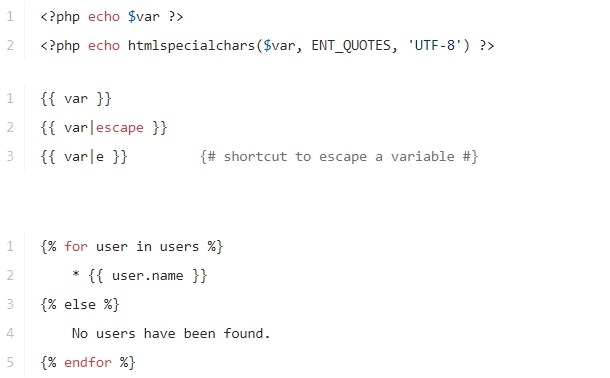5 Best PHP Template Engines in 2023
PHP template engines are great tools to help you quickly and easily create websites. They allow you to work with templates that contain predefined regions where you can insert your own content. This can save you a lot of time and hassle when creating a website. In this article, we will take a look at some of the best PHP template engines available today.
The Best PHP Template Engines
Twig

Twig is a modern template engine for PHP that is very concise, fast, secured, easy to learn, and full-featured. Twig compiles templates down to plain optimized PHP code, which reduces the overhead compared to regular PHP code.
Twig also has a sandbox mode to evaluate untrusted template code, which allows it to be used as a template language for applications where users may modify the template design. Twig is powered by a flexible lexer and parser, which allows the developer to define its own custom tags and filters, and create its own DSL.
It has shortcuts for common patterns, like having a default text displayed when you iterate over an empty array. Additionally, Twig supports everything you need to build powerful templates with ease, including multiple inheritances, blocks, automatic output-escaping, and much more.
Blade
Laravel’s Blade engine is one of the most popular PHP templating engines. It is simple, yet powerful, and makes it easy to create clean, DRY templates.
Unlike other PHP templating engines, Blade allows you to use plain old code in your templates – no restrictions on what kind of language they’re written in! The compiled version will always be cacheable so there’s effectively zero overhead added to apps created using this framework (which makes it perfect for performance-conscious web development). Blade files have an extension like .blade.*, which can either reside at resources/views.
Blade provides a number of features that make it ideal for use with Laravel, including:
- Ease of use – Blade templates are easy to read and understand, even for those who are not familiar with PHP.
- Clean syntax – Blade avoids the use of inline PHP, making templates clean and readable.
- Template inheritance – Blade enables developers to easily create child templates that inherit all the content and functionality of a parent template.
- Sections -Blade templates can be divided into sections, which can be included or excluded as needed.
- Variables -Blade templates can access data stored in PHP variables, making it easy to pass data from the controller to the template.
- Blade is fast – thanks to its compiled nature, Blade templates are very fast.
Smarty
Smarty is a popular PHP template engine that helps you create dynamic websites quickly and easily. It allows you to reuse code fragments, optimize your code for performance, and use templates for both the front-end and back-end of your website. Smarty also has a large community of users who are always willing to help out with any questions you may have.
It allows you to write templates using variables, modifiers, functions, and comments. Not only is it extremely fast, but it is also very efficient. The PHP parser does the dirty work, so there is no template parsing overhead. Plus, it only compiles once. And if you make any changes to your templates, it is smart enough to recompile only the files that have changed.
You can also create your own custom functions and variable modifiers. So as you can see, Smarty is an extremely powerful and extensible tool. If you are not already using it, then you should definitely check it out.
Mustache
As a PHP developer, you may be familiar with Mustache template engine. Mustache is a logic-less template engine, which means that it relies on simple string interpolation rather than complex code blocks. This makes it ideal for template designers who want the power to style their own front-end without having to learn a programming language.
What you may not know is that Mustache can be used for more than just HTML. In fact, it can be used for config files, source code – anything. That’s because it works by expanding tags in a template using values provided in a hash or object. We call it “logic-less” because there are no if statements, else clauses, or for loops.
Instead, there are only tags. Some tags are replaced with a value, some nothing, and others a series of values. This document explains the different types of Mustache tags.
Mustache is also one of the most popular template engines for PHP, with support available for all major frameworks.
Volt
Phalcon is a template framework written in C and released under the MIT License for PHP. Volt is its associated template engine, also written in C. According to Phalcon’s website, “targeting high performance and low resource consumption,” Phalcon can “reduce the overhead typical of MVC-based applications.”implementation unique to Phalcon.
Volt borrows from the template syntax of Jinja, a templating language for the Python programming language, created by Armin Ronacher. familiarity for PHP developers who may be new to Phalcon. as well as those already familiar with similar frameworks.
Indeed, many of Volt’s features and syntax will be immediately recognizable to experienced developers. However, Volt also offers some unique features not found in other template engines, as well as enhancements to familiar features that make it an advantageous choice for those looking for a fast and efficient templating solution.